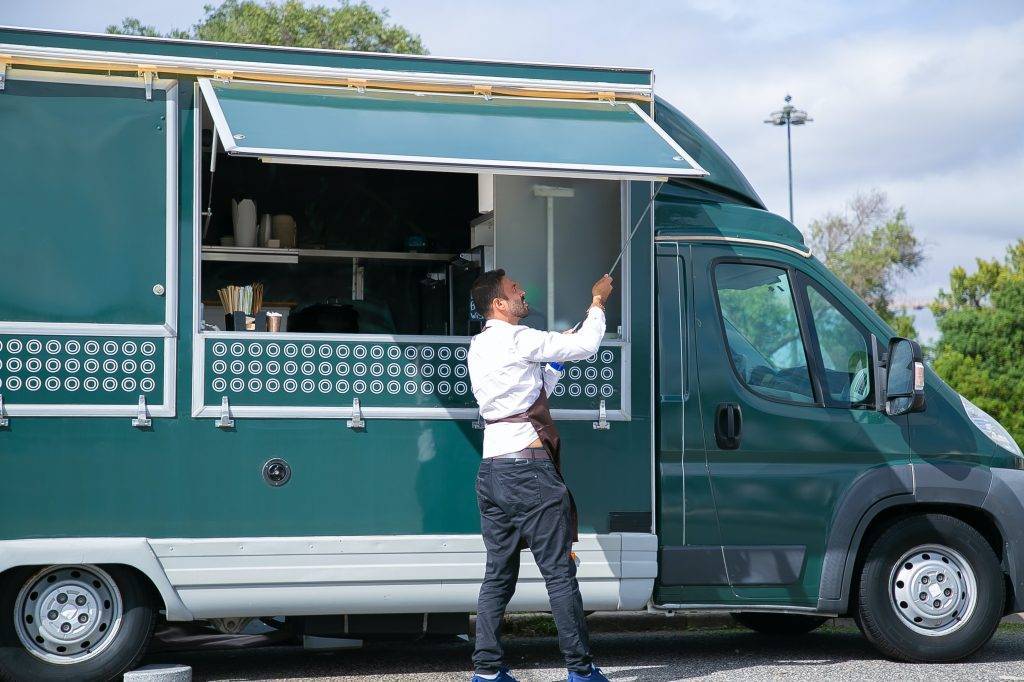Food Truck Business Loans: Fueling Mobile Culinary Success
Get Funded Now
Applying is free and will not affect your credit score
As a financial expert, I understand the unique challenges and opportunities that come with running a food truck business. Food trucks, which are like mobile kitchens on wheels, require financing to start or expand their operations. Despite facing similar regulations, expenses, and startup costs as traditional restaurants, food trucks offer distinct advantages in terms of mobility, affordability, and focused menus. In fact, the food truck industry has experienced significant growth, generating over a billion dollars annually according to industry research firm IBISworld. Let’s explore the different aspects of food truck business loans and how they can benefit your venture.
Why You Need a Food Truck Business Loans?
When entering the food truck industry, it becomes clear that securing business loans is crucial to finance your truck and ensure a successful start. However, before jumping into loan applications, it’s important to carefully consider your business plan. Your menu selection will dictate the size of your truck, necessary equipment, and various other aspects of your food truck operation. Additionally, there are several expenses associated with running a food truck business:
Buying a New Truck:
Investing in a food truck is a significant expense and a major consideration for your financing options. You have three choices: buying a used food truck, purchasing a used truck and building a new kitchen, or buying a new truck and outfitting it with a new kitchen. Each option comes with its own pros and cons, such as upfront costs and renovation requirements.

Cooking Equipment
Your food truck’s kitchen setup depends on the specific products you plan to offer. It’s essential to determine the required equipment and associated costs based on your menu. The kitchen expenses will vary depending on your culinary offerings and can include items such as grills, fryers, or espresso machines.
Hiring
Depending on the complexity of your menu, the size of your truck, and your operational requirements, you may need to hire additional staff to handle driving, cooking, or managing your point-of-service system.

Paperwork
Running a food truck involves obtaining licenses, permits, and insurance. These requirements differ based on your location and may include general liability insurance, commercial vehicle insurance, health inspections, and permits for specific operations like serving alcoholic beverages. Such expenses add up and must be considered when planning your financing needs.
Marketing
Promoting your food truck is essential to attract customers. Marketing expenses can include advertising on paper, building a dedicated social media presence, or participating in food truck festivals. Effective marketing strategies play a crucial role in the success of your food truck business.

Forms of Food Truck Financing
Opening a food truck business requires financial support, even though it may have lower upfront costs compared to traditional brick-and-mortar establishments. Various loan options are available to meet the specific needs of food truck owners. Understanding these options can help you choose the most appropriate financing solution for your situation:
Traditional Lending
Traditional bank loans are a common option for small business financing. Lenders assess your credit history, annual income, and other factors to determine your creditworthiness. If approved, you receive a loan amount that is repaid with interest over time. These loans offer flexibility and can be used for multiple purposes, including hiring staff, purchasing a truck, stocking ingredients, and managing cash flow.
SBA Loans
The United States Small Business Administration (SBA) offers loan programs that provide guarantees to lenders, reducing their risk. SBA loans often have lower interest rates and longer repayment terms compared to traditional loans. The SBA 7(a) loan is the most common, with repayment terms ranging from 10 to 25 years. The SBA 504 loan is specifically for financing assets that contribute to business growth and job creation. Additionally, the SBA offers microloans through local groups, which can be a suitable option for lower upfront costs associated with food Truck Business Loans.
Business Credit Cards
Business credit cards function similarly to personal credit cards but are intended for business expenses. They provide a credit limit based on factors such as your credit score and income. Business credit cards can be used to cover unexpected costs, earn rewards, and build credit. They are particularly useful for managing small, unplanned expenses that may arise in the food truck industry.
Equipment Loans
Food trucks heavily rely on specialized equipment, such as POS systems and kitchen appliances. Equipment loans are designed specifically for financing business equipment. You make a down payment on the equipment, and the lender provides a loan for the remaining cost. The equipment itself serves as collateral, reducing the risk for the lender. These loans typically have lower interest rates, making them advantageous for food truck owners.
Lines of Credit
Business lines of credit are similar to business credit cards but with a larger credit limit. Once approved for a credit limit, you can make payments based on the amount you’ve used. Lines of credit provide a safety net for unexpected expenses, allowing you to quickly address issues and resume operations.
Crowdfunding
If you have an existing restaurant with a loyal customer base, crowdfunding can be a viable option to finance your food truck. Your customers may be willing to contribute to your food truck venture in exchange for rewards or benefits. Crowdfunding campaigns can help generate funds for a new truck and increase customer engagement.
Cash Advances
Cash advances differ from traditional loans as they involve selling a portion of your future credit card sales to a lender. Instead of interest rates, cash advances use a factor rate, and payments are made based on a percentage of each credit card transaction. Cash advances are often used for quick access to cash, but they can be more expensive compared to other financing options.
Choosing the Right Loan for Your Food Truck Business
Selecting the best Food Truck Business Loans option depends on various factors, such as your creditworthiness, funding requirements, speed of funding, and whether you are starting a new food truck or expanding an existing venture. Carefully consider your specific needs and goals to determine which loan option aligns with your business plan. A clear understanding of your financing needs will help you build a thriving food truck company in an exciting and growing industry.
Remember, applying for a Food Truck Business Loans means you’re asking a financial institution to believe in your ability to repay. Strong credit, high revenue, solid bookkeeping, and a well-defined business plan can improve your chances of securing favorable terms. Evaluate your options, weigh the benefits and costs, and choose the financing solution that aligns with your food truck business goals.
With the right financing in place, you can drive your food truck venture to success and satisfy the appetites of your eager customers.
For more details please feel free to Contact here
